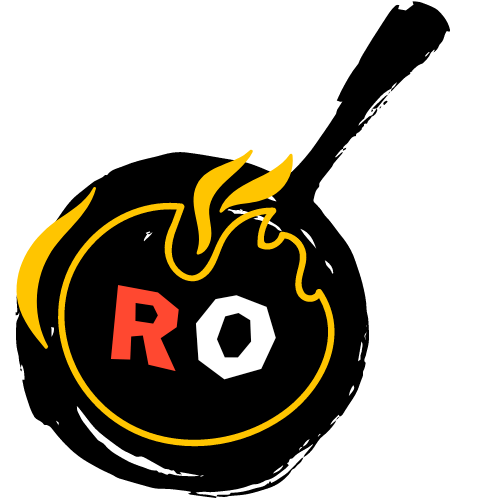6 Leadership Lessons for Restaurant Owners
Success in the restaurant industry hinges on more than just delectable dishes; it demands astute leadership and strategic management. This article delves into key lessons that equip restaurant owners to elevate their team's performance, refine customer experiences, and stay ahead in a competitive market. Explore pivotal strategies from taste-testing to leveraging data, and learn how to foster relationships that propel your restaurant to new heights.
- Taste Everything Twice: A Leadership Perspective
- Empower Staff Through Trust and Delegation
- Prioritize Customer Feedback for Continuous Improvement
- Foster Innovation to Stand Out
- Leverage Data-Driven Decisions for Operational Efficiency
- Cultivate Strong Vendor Relationships for Success
Taste Everything Twice: A Leadership Perspective
My guiding principle is "taste everything twice"--literally and metaphorically. Beyond ensuring consistent quality of our dishes, this philosophy extends to how I lead our team. Before making decisions that impact staff, I first experience situations from their perspective, then reconsider from a leadership angle. When our service team struggled with complex plating instructions, I worked a full service shift alongside them before revising our procedures. This dual perspective revealed practical challenges I'd missed from my executive viewpoint. Great culinary leadership requires this constant perspective-shifting--understanding both the business necessity and the practical execution reality. When team members see you regularly stepping into their roles, it creates authentic respect that no amount of authority can command.

Empower Staff Through Trust and Delegation
Empowering staff through trust and delegation is a cornerstone of effective restaurant leadership. By giving employees the authority to make decisions, owners can create a more engaged and responsible workforce. This approach fosters a sense of ownership among staff members, leading to improved performance and customer service.
When team members feel trusted, they are more likely to go above and beyond in their roles. Restaurant owners should start by identifying key areas where staff can take on more responsibility and gradually expand their autonomy. Implement this strategy today to see a positive shift in your restaurant's atmosphere and efficiency.
Prioritize Customer Feedback for Continuous Improvement
Prioritizing customer feedback is crucial for the continuous improvement of a restaurant. By actively seeking and valuing customer opinions, owners can gain invaluable insights into their establishment's strengths and weaknesses. This feedback can guide menu adjustments, service enhancements, and overall experience improvements.
Regularly analyzing customer comments helps identify trends and areas that require attention. Restaurant owners should establish a systematic approach to collecting and reviewing feedback from various sources such as online reviews, comment cards, and direct conversations. Take action now to implement a robust feedback system and watch your restaurant evolve to meet customer expectations.
Foster Innovation to Stand Out
Fostering a culture of innovation and creativity can set a restaurant apart in a competitive industry. Encouraging staff to think outside the box can lead to unique menu items, improved processes, and memorable dining experiences. This approach keeps the restaurant fresh and exciting for both customers and employees.
Innovation can extend beyond the kitchen to marketing strategies, dining room layout, and customer engagement. Restaurant owners should create an environment where new ideas are welcomed and rewarded. Start today by scheduling regular brainstorming sessions with your team to tap into their creative potential and drive your restaurant forward.
Leverage Data-Driven Decisions for Operational Efficiency
Implementing data-driven decision-making can significantly enhance a restaurant's operational efficiency. By utilizing modern technology and analytics tools, owners can gain deep insights into various aspects of their business, from inventory management to staff scheduling. This approach allows for more accurate forecasting, reduced waste, and optimized resource allocation.
Data can also reveal patterns in customer behavior, helping to tailor marketing efforts and menu offerings. Restaurant owners should invest in appropriate software and train staff to interpret and act on the data collected. Begin your journey towards data-driven operations now to stay ahead in the competitive restaurant landscape.
Cultivate Strong Vendor Relationships for Success
Cultivating strong vendor relationships is essential for maintaining a high-quality dining experience. By building solid partnerships with suppliers, restaurant owners can ensure consistent access to premium ingredients. These relationships often lead to better pricing, priority service, and insider knowledge of market trends.
Strong vendor ties can also provide a safety net during supply chain disruptions, ensuring the restaurant can continue to serve its signature dishes. Restaurant owners should invest time in nurturing these relationships through regular communication and fair business practices. Take the initiative today to strengthen your vendor network and secure a reliable supply of top-notch ingredients for your establishment.

